The Rabbi Who Entered Secular Schools: "Religious Indoctrination? Never Encountered It"
"There are children in Israel who don't know what a shofar is," says Rabbi Elisha Levy, who does the unbelievable by visiting numerous secular schools and kindergartens nationwide to teach about the shofar voluntarily. And that's just a small part of his extensive activities. So how come he's never heard of religious indoctrination?
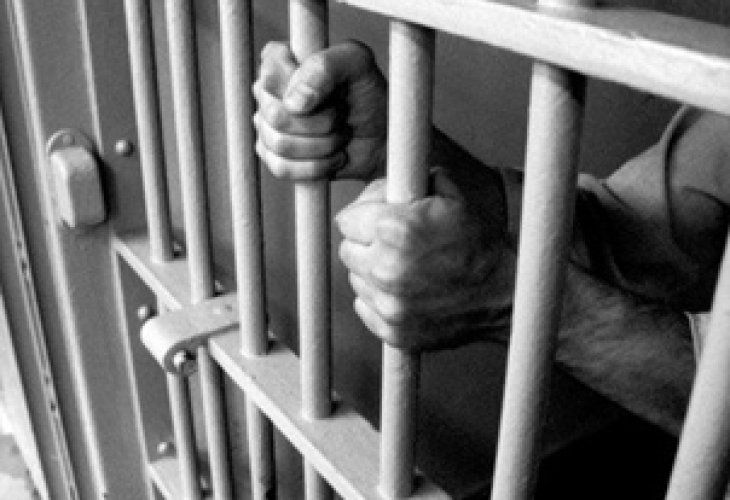
"Rabbi, what is that long thing?" A pair of blue eyes sweetly examines the shofar in Rabbi Elisha Levy's hands.
"Rabbi, isn't it blown when Yom Kippur ends?" asks a child studying in one of the senior classes, who apparently remembers something vaguely but has never heard of the obligation to blow the shofar on Rosh Hashanah.
Rabbi Elisha stands at the doorway of a second-grade classroom and succeeds in doing what teachers can't even on the first day of the school year – calming all the children and making them sit quietly in their seats, gripped by curiosity.
"Sit, sit, I will tell you soon," he promises as if sharing a secret, then pulls out a small organ.
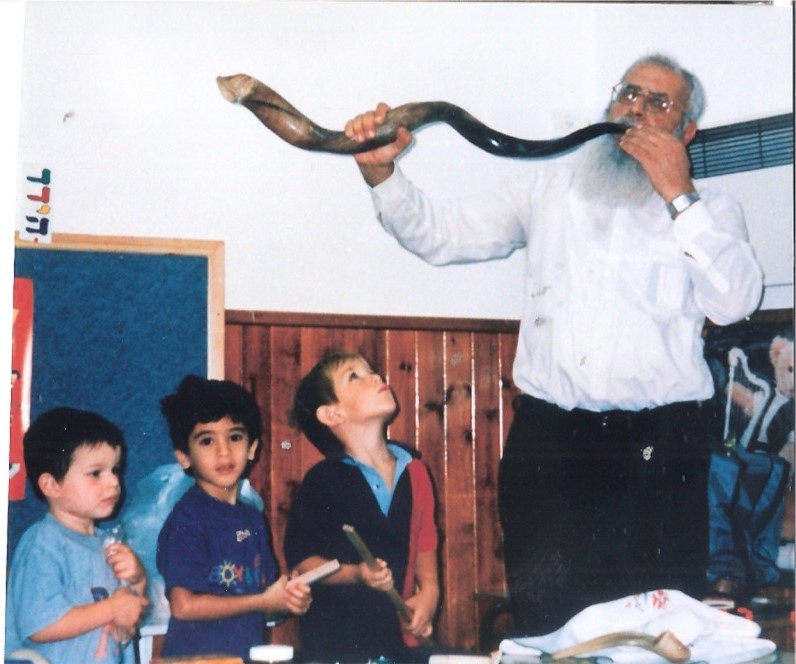
Learning from Life
Rabbi Elisha is a Jew full of love. Love for Israel. Love for humanity. Love for everyone created in God's image. He immigrated to Israel as a thirteen-year-old from Morocco, studied at the Porat Yosef Yeshiva, fought in the Six-Day War, and currently serves as a synagogue rabbi while managing extensive outreach and heart-strengthening activities. This does not prevent him from sticking to a hobby he has embraced for decades – visiting kindergartens and secular schools to strengthen and introduce Jewish concepts to children, especially the Jewish holidays.
In these days leading up to Rosh Hashanah, Rabbi Elisha visits schools and kindergartens, delivering a special workshop about the mitzvah of blowing the shofar. "I started this after researching the secular public and discovering, to my regret, that many people are not familiar with the obligation of the mitzvah of blowing the shofar. It's a mitzvah entirely unknown to them," he says sorrowfully, "and I'm not talking about small children but about adults. They sometimes show tremendous ignorance regarding the most basic concepts in Judaism, and clearly, if they don't know, they can't pass the message to their children."
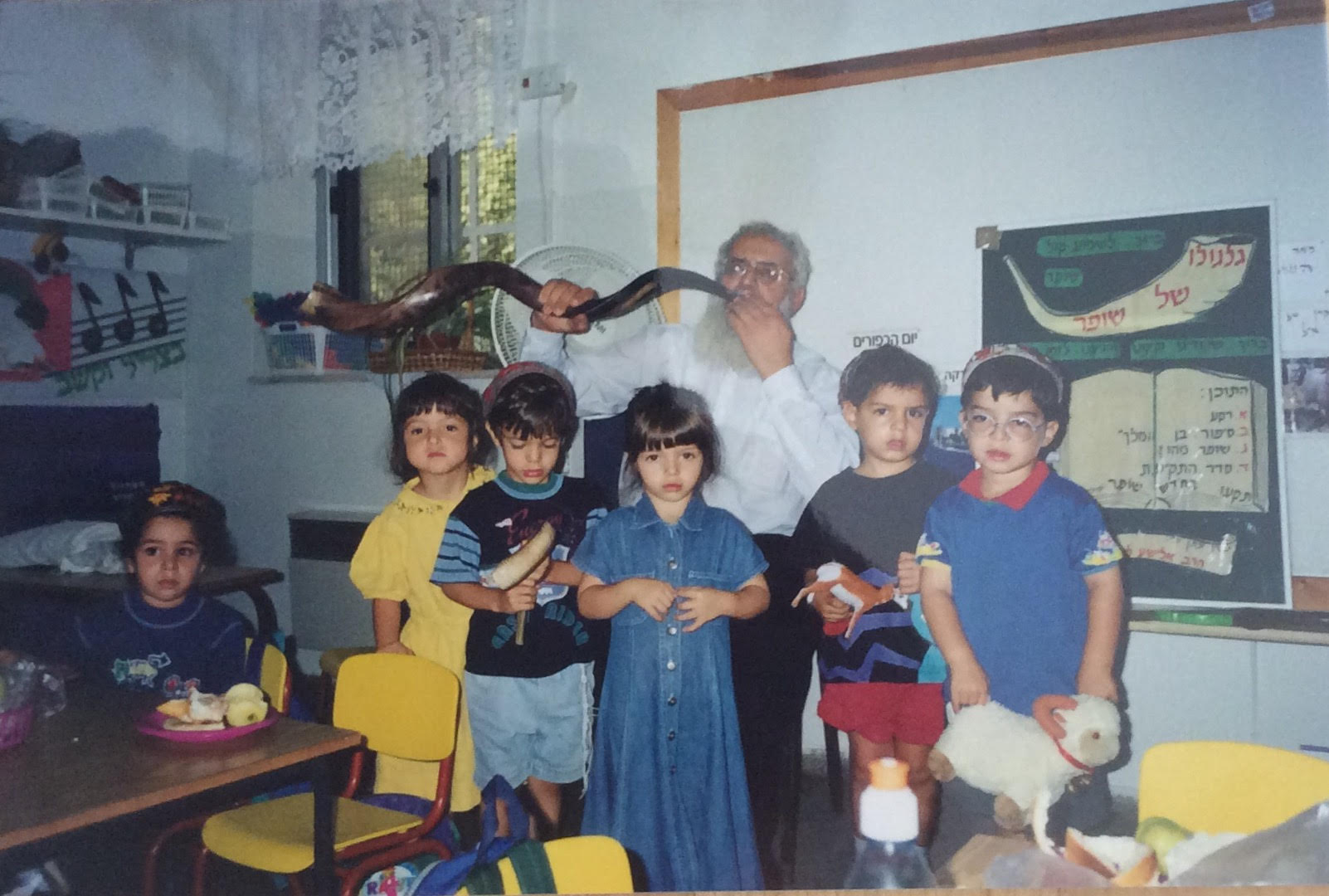
Rabbi Elisha aims to fill this void. For decades, he has been going to schools and starting with keyboard sounds. He plays a long sound (tekiah), then a broken sound (shevarim), and also a short sound (teruah). This is how he begins to connect the children to the topic.
Do the children you meet come with some background?
"I'm sorry to disappoint, but generally not at all. I always start from scratch, telling them about the Giving of the Torah, where it is said, 'And the sound of the shofar grew louder and louder,' continuing with the verse 'Blessed is the people that know the sound,' and quoting more sources, depending on the class, the level, and general knowledge. Then I write the word 'shofar' on the board and ask the children if they have an idea why it is called a shofar."
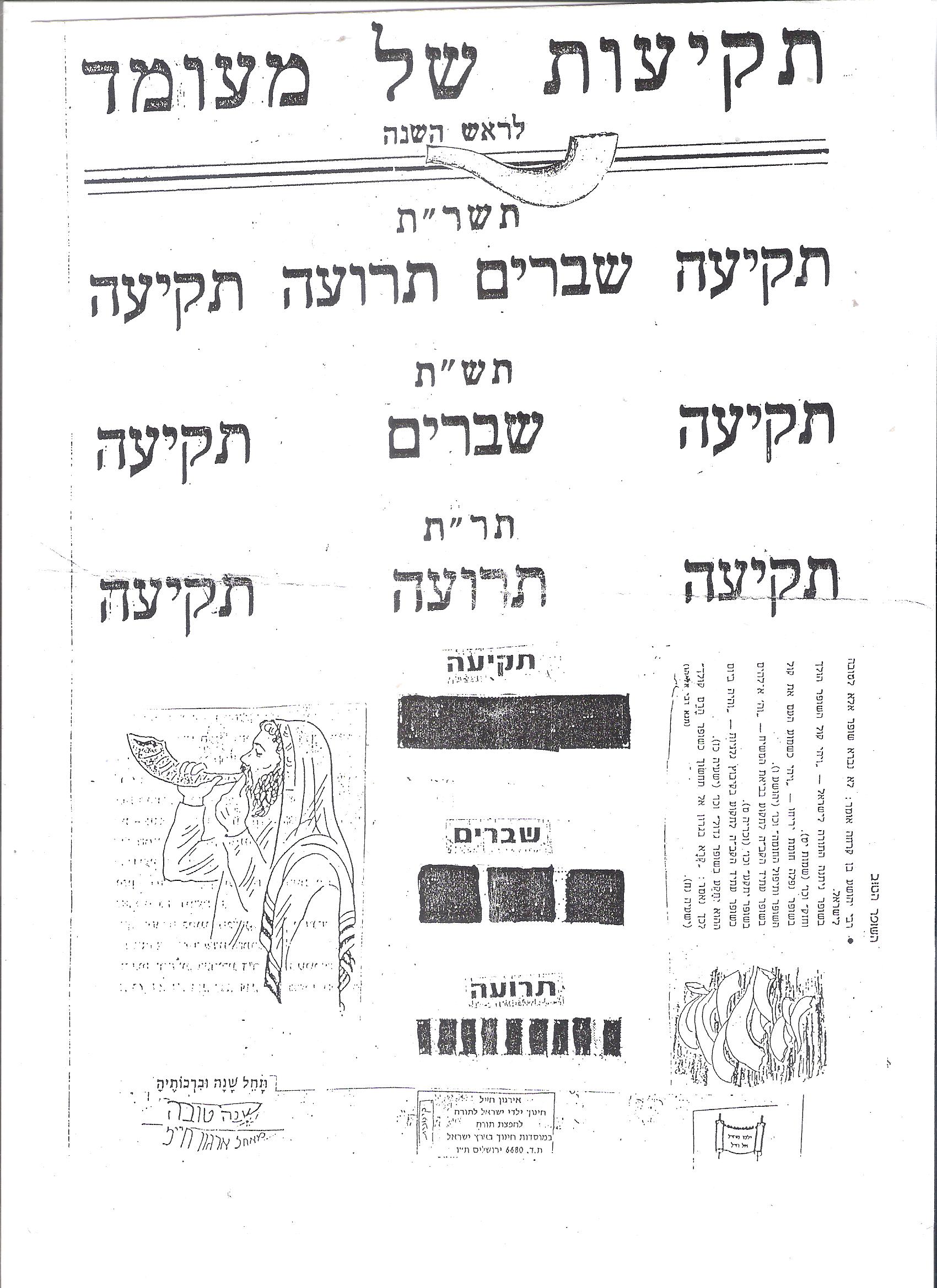
And what do they answer?
"Usually, they don't answer because they don't know. At this point, I look for concepts from their world and tell them a story about a kid who was very mischievous and the teacher wrote a letter to his parents: 'To the dear parents, your child needs to improve.' I emphasize the word 'improve' and thus hint at the origin of the word 'shofar.' I also bring a Rosh Hashanah prayer book and show them exactly when, how, and how many times it is customary to blow the shofar. The most important thing I try to convey is that it's a positive mitzvah from the Torah. It's a mitzvah from the Torah."
Tremendous Thirst
Rosh Hashanah is just one opportunity for Rabbi Elisha to reach schools and kindergartens. "I do this also for other holidays, like Chanukah, when I come with menorahs, or before Shavuot, when I bring a sickle and teach the children how the Omer was harvested, while during the Three Weeks, I walk around with a model of the Temple and tell about the burning of the House and the exile."
Do the children connect to these things?
"It's unbelievable how much they connect," Rabbi Elisha says excitedly. "Every time, teachers come to me and say it's the first time they see their students sitting so quietly, without making a peep or talking. Almost always, children approach me at the end of the workshop and ask me to teach their parents what I taught in class, so they too will know."
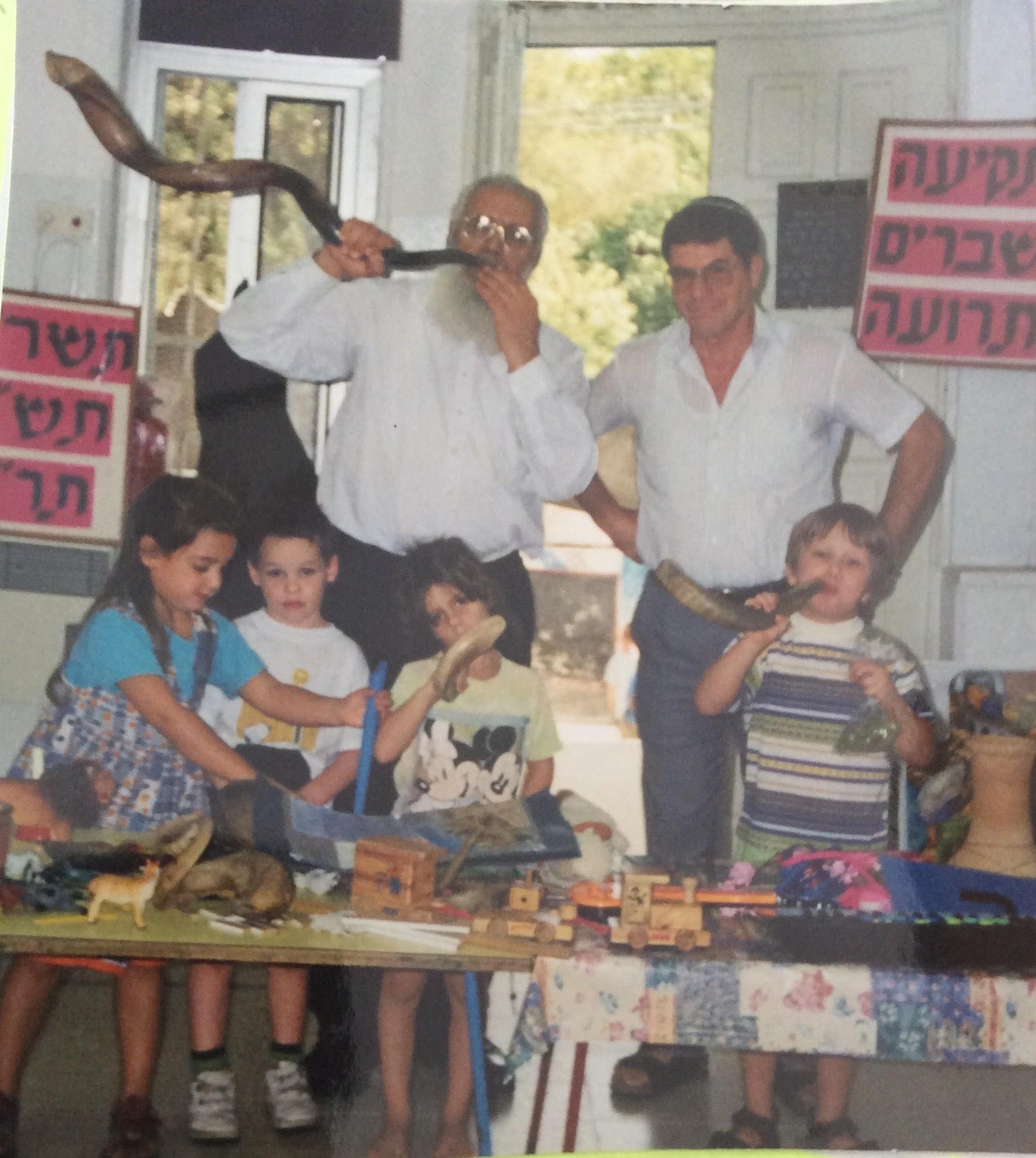
And what do you reply to them?
"After several such requests, I decided to hold workshops for adults as well. I go to offices and different conferences where I am invited and convey the messages to anyone interested in hearing. Of course, I never try to impose anything on anyone; I just aim to add concepts and answer questions."
As part of this, Rabbi Elisha has lately become the unofficial rabbi of the Mahane Yehuda Market. The vendors at the stalls know him well; he comes there every Friday, announces the approaching Shabbat over a loudspeaker, gives a "mi sheberach" blessing to the merchants, and strengthens them on matters of tithes, interest, and other mitzvot relevant to them.
Love Will Prevail
Rabbi Elisha, the explanations are truly interesting, but we are talking about schools from the secular stream. Are there no objections? Do the teachers not get angry? Is there no talk of 'religious indoctrination'?
"I will tell the truth," says Rabbi Elisha, noticeably speaking from the heart. "Never, but never have I encountered anyone claiming I am trying to impose religion or introduce concepts to their children forcefully. I genuinely come from a place of love, and all my activities are done entirely voluntarily. I go to all parts of the country without any payment. I believe that when a Jew acts from the heart, such feelings are passed on. No one can be angry about that."
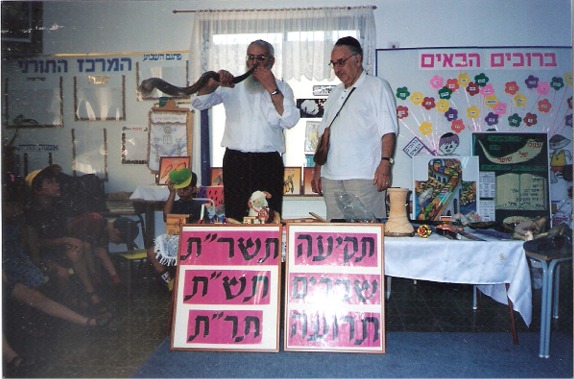
He claims to have adopted these conclusions since his time as a soldier. "The period I fought in Sinai was exactly during Chanukah. I remember like today the first night of Chanukah when all the soldiers, including those who weren't religious, were looking for a way to fulfill the mitzvah of lighting the candles. I was the only observant soldier, and naturally, everyone gathered around me. We didn't have a menorah, so I took nine empty artillery shells, filled them with gun oil, and lit the fire with the cloth used for cleaning rifle barrels. When I lit the candles, it was so moving, and I saw how everyone around me was happy and excited. It proved to me that even the most distant individuals need religion and secretly want to experience it. During the war, I continued to care for kashrut and the eiruv, believing there was a need for it. This story stays with me and influences me to this day," he says.
Before we finish our conversation, Rabbi Elisha points out the conclusion of the shofar workshop he conducts. "As I mentioned," he emphasizes, "when I open the workshop, I use only the organ. Then I illustrate, speak, and demonstrate, and only in the very last stage do I pull out the shofar, and then I see how suddenly all the eyes light up."
A silent hush descends, and Rabbi Elisha takes a deep breath and demonstrates the shofar blowing to me: a powerful blast that pierces the hearts. "And the souls," he says with satisfaction, "I feel how all the souls light up. Something there penetrates, and that is my reward."

